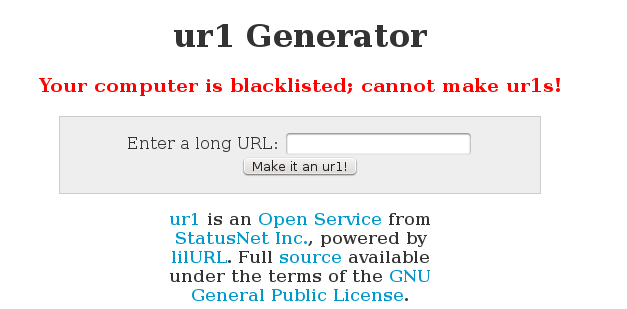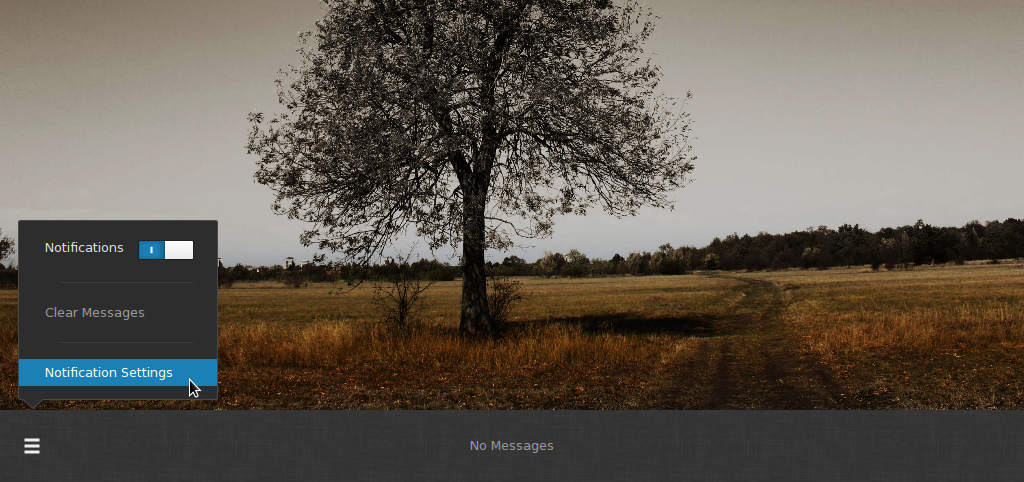For the past few years I’ve been using a URL shortening service called ur1. It is a GPL-licensed URL shorterner from StatusNet Inc..
Why employ the services of goo.gl, t.co and bit.ly If I can do just as well by using a similar service from super-friendly folks?
But I was surprised today when I tried to use it from Tor Browser and it failed to generate a short URL. Instead, I got this message: “Your computer is blacklisted; cannot make ur1s!”
Just to be sure, I verified that I could shorten the same and other URLs from Firefox and Chromium and even Opera 26. And I also verified that I can employ the services of goo.gl, t.co and bit.ly to shorten any URL when using Tor Browser.

Figure 1: ur1 blacklists a computer for using its services from Tor Browser.
Not sure what the heck is going on here, but I don’t want to believe that StatusNet will intentionally prevent its services from being used via the Tor Network. I’ll update this post When I get a response from StatusNet.








It\’s been a while since this was posted. Any news?
The title of this post is a little misleading. From the sound of it, I assumed your computer itself was blacklisted from some service (perhaps correlating unique metadata). That would be fairly remarkable. Instead, they had simply blacklisted the exit node you were using. This is very common. Google and Cloudflare sites require Tor users to complete a captcha. Some sites will ban or lock your account if you log in from a Tor exit node. Others outright ban any use from Tor exit nodes.
I have experienced the same thing. But why blacklist the exit node list? And should TOR developers/TOR users ask them to whitelist it instead?
They have blacklisted the exit node list.
Common for services to do so.
They have also blacklisted the VPN I use :
https://mullvad.net/en/
It seems they are blocking most of these services.